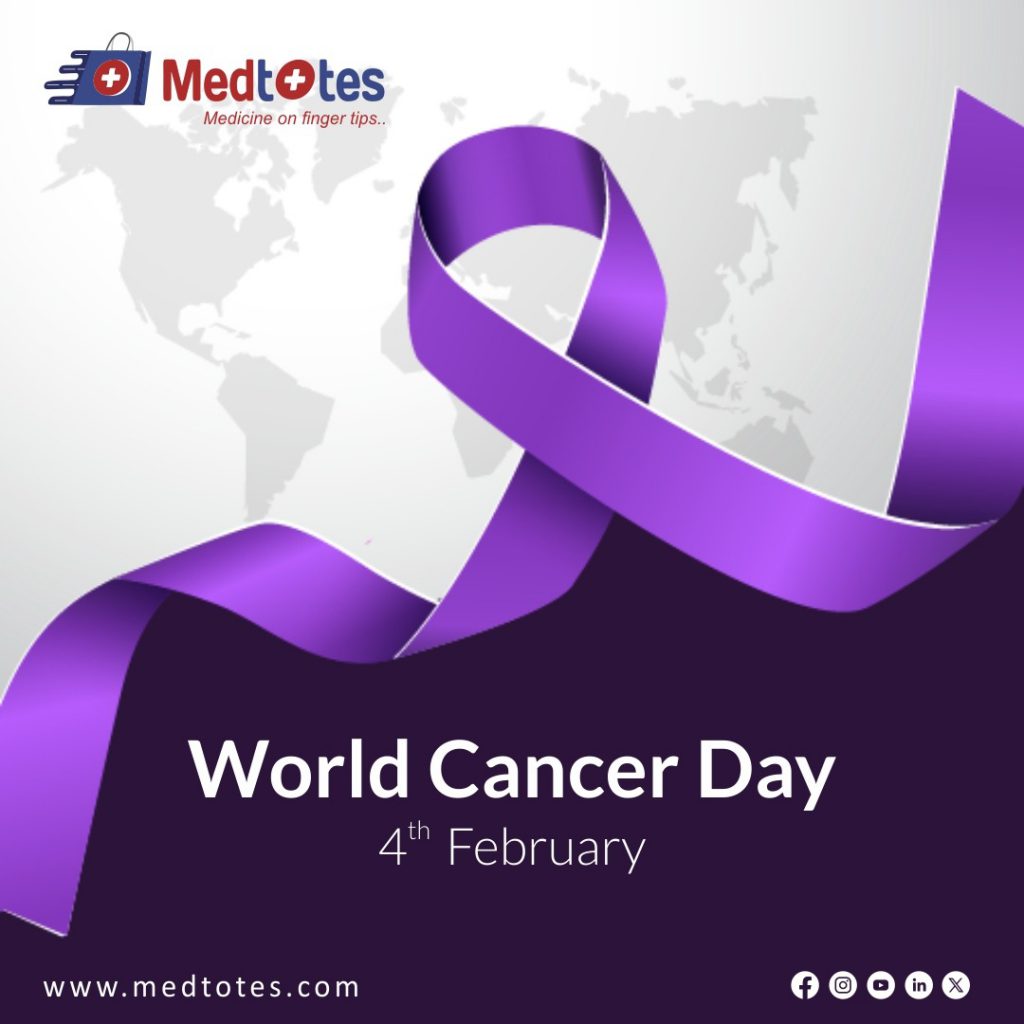I. INTRODUCTION
World Cancer Day, an international observance held on February 4th, aims to raise awareness, inspire action, and transform the fight against cancer. Cancer affects millions of lives annually, and through collective efforts, we strive to support those impacted, advance research, and advocate for improved access to care. This day serves as a reminder of the importance of taking action against this devastating disease. By coming together on World Cancer Day, we can show solidarity and determination to fight against cancer. By volunteering at local cancer support centers, participating in fundraising events, or spreading awareness, we can make a difference in the fight against cancer. Together, we can work towards a future where no one will suffer from the effects of cancer and access to quality care and treatment is available to all.

II. UNDERSTANDING CANCER
Cancer knows no boundaries; it can affect anyone, regardless of age, gender, ethnicity, or socioeconomic status. Its impact reverberates through families, communities, and entire nations. From the moment of diagnosis, individuals and their loved ones embark on a journey filled with challenges, uncertainties, and resilience. Understanding cancer is crucial in order to effectively combat the disease. Cancer is a complex condition characterized by the uncontrolled growth and spread of abnormal cells in the body. It can affect any part of the body and have various causes, including genetic factors, exposure to carcinogens, and lifestyle choices. By understanding the different types of cancer, their risk factors, and early warning signs, individuals can take proactive steps to reduce their risk and seek early detection and treatment.
III. HOW TO LOWER YOUR RISK OF CANCER
- Maintain a healthy lifestyle by eating a balanced diet, exercising regularly, and avoiding tobacco and excessive alcohol consumption.
- Protect yourself from harmful UV radiation by using sunscreen, wearing protective clothing, and avoiding excessive sun exposure.
- Get vaccinated against viruses that can cause cancer, such as human papillomavirus (HPV) and hepatitis B.
- Stay updated on regular screenings and check-ups to catch any potential cancer early on.
- Avoid exposure to known carcinogens, such as asbestos, radon, and certain chemicals, in the workplace or environment.
- Make informed decisions about hormone replacement therapy and birth control methods, as they may increase the risk of certain cancers.
- Maintain a healthy weight, as obesity has been linked to an increased risk of several types of cancer.
- Limit your consumption of processed and red meats, as they have been associated with a higher risk of colorectal cancer.
- Educate yourself about family history and genetic predispositions, as certain cancers may have a hereditary component.
IV. SIGN OF ANY POTENTIAL SYMPTOMS
- Pay attention to any changes in your body, such as unexplained weight loss, persistent coughing, or abnormal bleeding.
- Regularly check for any abnormal growths or lumps on your body, especially in the breast or testicles.
- Be aware of any changes in your bowel habits or urinary function, as these can be signs of digestive or urinary tract cancers.
- Monitor any changes in your skin, such as the appearance of new moles or sores that do not heal.
- Keep track of any persistent pain or discomfort, as this can be a symptom of various types of cancer.
- Don’t ignore any signs of fatigue, unexplained fevers, or night sweats, as they can be indicators of underlying health issues, including cancer.
- If you experience any of these symptoms or notice any other unusual changes in your body, consult a healthcare professional for further evaluation.
V. TREATMENT OPTIONS
Treatment options for cancer can vary depending on the type and stage of the disease. The best treatment approach will be determined by a medical team based on the individual’s specific diagnosis and overall health. It is important to discuss all available treatment options with a healthcare professional to make an informed decision and create a personalized treatment plan.
- Surgery
- Chemotherapy
- Radiation therapy
- Immunotherapy
- Targeted therapy
- Hormone therapy
- Stem cell transplantation (bone marrow transplantation)
- Precision medicine
- Photo dynamic therapy
- Cryotherapy
- Radio frequency ablation
- Microwave ablation
- Angiogenesis inhibitors
- CAR T-cell therapy
- Monoclonal antibody therapy
- Interferon therapy
- Proton therapy
- Nanotechnology-based treatments
- Gene therapy
- Biologic therapy
VI. CONCLUSION
In Conclusion. A thorough discussion with a healthcare professional is crucial to determine the most suitable treatment plan for an individual’s specific condition and needs. By considering all available options, patients can make informed decisions that maximize their chances of successful treatment and long-term recovery. It’s important to remember that each person’s journey is unique, and personalized treatment plans are crucial for achieving successful outcomes.
Download our app: https://bit.ly/3tkQkFy
